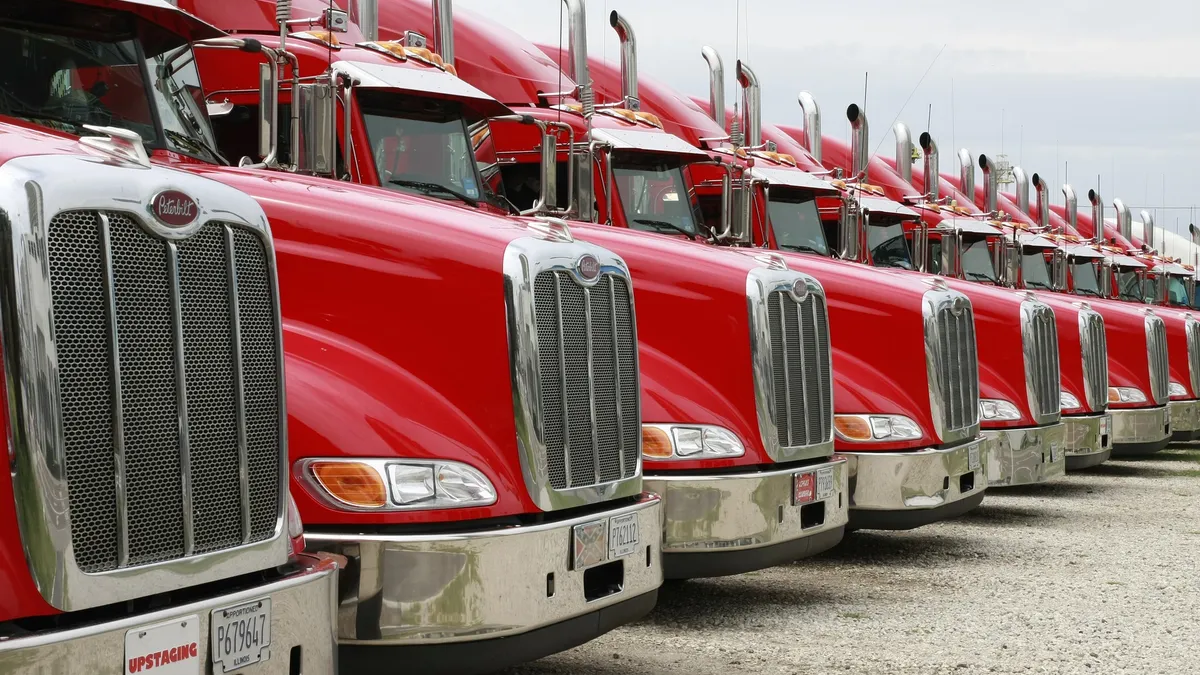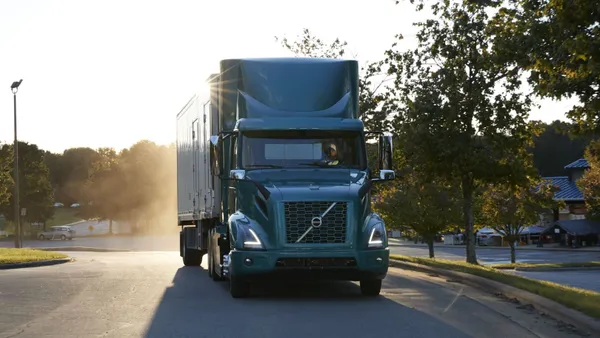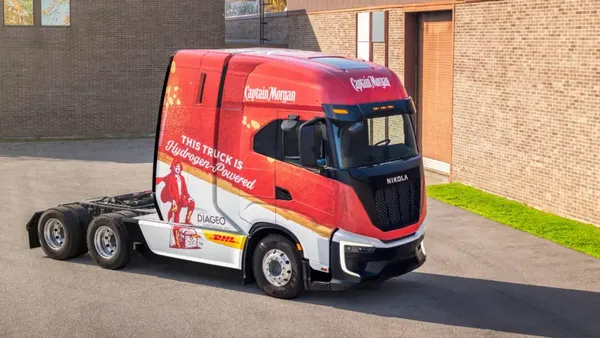Dive Brief:
- Fleets placed just 4,275 North American Class 8 orders in April, according to a Wednesday news release from ACT Research. That is a decline of 71% year over year.
- Class 8 production was also at its lowest monthly build volume in ACT Research records, which began in 1979, according to Kenny Vieth, president and senior analyst of ACT Research. With so little produced in April, Class 8 inventories fell sharply month over month, Vieth said. The inventory decline was the largest sequential drop on record, "and a big step in clearing a still-too-large new vehicle inventory," he said.
- Even before North America first reported cases of COVID-19, orders were on their way down in 2020, according to Kenny Vieth, president and senior analyst of ACT Research. Class 8 orders were 17,200 in January, 14,100 in February, and 7,600 in March.
Dive Insight:
Class 8 orders have crashed — April's numbers are the lowest since September 1995, ACT Research said — and it's not just because of the COVID-19 pandemic. Class 8 inventories began a large build in reaction to the freight boom of 2017-2018. A number of the other factors, including more favorable tax laws, led fleets to step up orders, with especially high orders in the autumn of 2018, Vieth told Transport Dive.
The Class 8 market continues to adjust after 490,100 orders were made in 2018. The peak in orders, which began in mid-2018, led to a 63% decline in 2019, when 181,000 orders were made, according to ACT Research. Medium-duty truck orders were at their worst in a decade, ACT Research reported.
Analysis by ACT Research over the last three years shows fleets responding to the variable favorable factors by "front-loading" orders.
"Truckers knew they would make a lot of money [in 2019]," Vieth said. "A lot of the orders that would have been placed in 2019 were placed in 2018."
Analysts have suggested a drop in orders and factory closures would allow sales lots to clear excess tractors, as demand and production could readjust. Ola Källenius, Daimler chairman, told investors on April 29 that Daimler knew, as the company came into 2020, that the truck markets were on their way down.
"In North America, I would say, normalizing after having been high, very high, for a couple of years," Källenius said. "And Europe, coming down as well."















